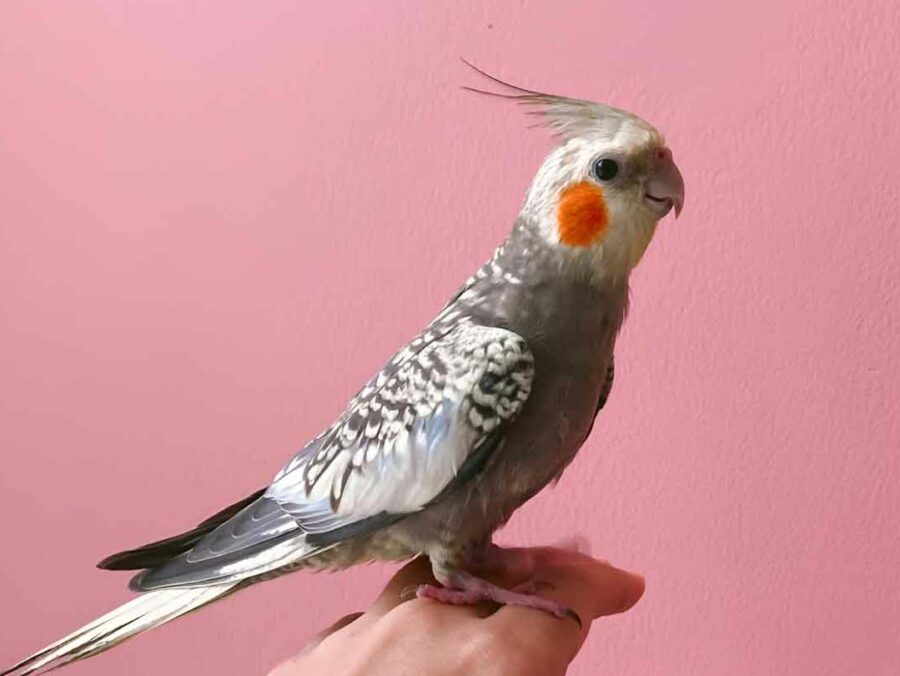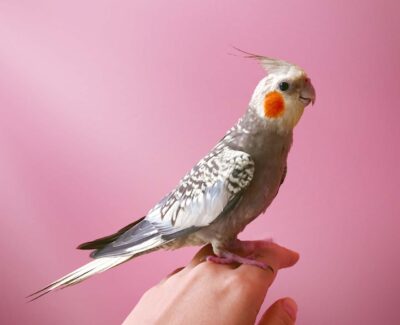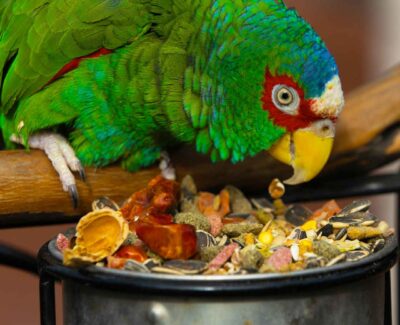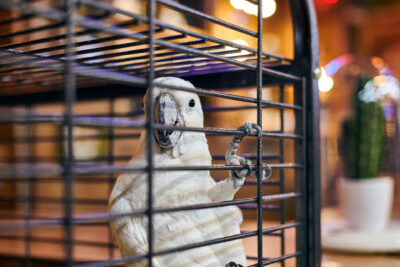
Key Tips for Socializing Your Pet Bird
As naturally social creatures that typically live in flocks in the wild, adequately socializing your pet bird is crucial for its emotional well-being and ability to bond with other birds in your home and the human members of your family. In fact, without socialization, birds may become shy, fearful, or even aggressive.
If you’ve recently welcomed a bird into your home or want to improve your feathered friend’s social skills, here are some key tips to help along the way.
Start with Trust Building
Before you can socialize your bird, it’s essential to build trust. Birds are naturally cautious of new environments, sounds, and people, so it’s important to take things slowly. Start by spending time near your bird’s cage, speaking to it in a calm and soothing voice. Allow your bird to observe you, and give it time to adjust to your presence.
Offering treats can be a great way to earn your bird’s trust; try offering a small piece of a favorite fruit or vegetable by hand. If the bird seems hesitant, you can leave the treat in the cage and slowly work toward having them take the food directly from you. Be patient—building trust can take time, but it’s the foundation for successful socialization.
Tune in to Your Bird’s Body Language
Body language is a key communication method for birds, and understanding their signals is essential for knowing when your bird is ready to socialize. Some common signs of comfort include a relaxed posture, softly puffed feathers, and preening or playing in your presence. If your bird is nervous or agitated, they may exhibit behaviors such as flattening their feathers, lunging, or making loud vocalizations.
As you pay attention to your bird’s body language, always respect their signals. If your bird seems uncomfortable, take a step back and give them some space; forcing interaction when your bird is nervous can hinder the socialization process. Let your feathered friend set the pace of interaction, and reward positive behaviors with praise and treats.
Create Positive Associations with Your Hands
One of the most important steps in socializing a bird is getting them comfortable with your hands. Many birds are initially fearful of hands, so it’s important to try to get your bird to associate them with positive experiences. Begin by simply placing your hand near the cage and talking to your bird softly. Over time, move your hand closer, but don’t attempt to touch the bird until they show signs of curiosity rather than fear.
Once your bird seems comfortable with your hand near the cage, try offering a treat. This can help your bird start to see your hand as something non-threatening and even pleasant. Eventually, you can work toward gently touching or coaxing your bird to step onto your hand or finger.
Practice Step-Up Training
“Step up” is a basic command that teaches your bird to step onto your finger or hand when prompted. This is not only helpful for socialization, but it also makes handling your bird easier during everyday activities such as moving them out of the cage, training, or interacting.
To teach your bird this command, offer your hand or finger near their perch and use a simple verbal cue like “step up.” If your bird seems hesitant, gently press your finger against their lower abdomen to encourage them to step onto your hand. Reward them with a treat or praise once they successfully step up, and repeat the process regularly to reinforce the behavior.
Provide Regular Out-of-Cage Time
Spending some time outside the cage enables birds to explore, play, and interact with their environment, all of which are essential for both physical exercise and socialization. When your bird is outside the cage, they have the opportunity to engage with you in new ways and become more accustomed to the household environment.
Set up a designated safe space for out-of-cage playtime, free from potential hazards like open windows, ceiling fans, or harmful objects. Use toys, perches, and treats to encourage your bird to explore and have positive interactions outside the cage, and gradually increase the amount of time they spend out of the cage as their confidence grows.
Introduce New Experiences Gradually
Birds can be sensitive to new experiences, so it’s important to introduce changes gradually. Whether it’s meeting new people, experiencing different environments, or introducing new toys, take a slow and steady approach. Start by allowing your bird to observe the new experience from a distance before bringing it closer. If your bird seems curious and comfortable, gradually increase their exposure to the new stimulus.
Socializing your feathered friend with other people is also important. Have trusted family members or friends interact with your bird by offering treats or speaking to them softly. This will help your bird become comfortable with a variety of people, thereby reducing anxiety or territorial behavior around strangers.
Use Positive Reinforcement
Positive reinforcement is one of the most effective tools for socializing your pet bird. Birds generally respond well to rewards like treats, praise, or playtime, so use these incentives to reinforce good behavior. For example, if your bird steps onto your hand or interacts calmly with new people, reward them with something enjoyable.
Avoid using punishment, as this can create fear and damage the bond you’re trying to build. If your bird displays undesirable behavior, such as biting or lunging, calmly withdraw your attention and allow them to calm down. Then, try again when your bird is more relaxed and willing to engage.
Be Patient and Consistent
Socializing a pet bird is a process that requires patience and consistency. Every bird is different—some may take to socialization quickly, while others may need more time. Don’t rush the process or get discouraged if progress seems slow. The key is to interact with your bird regularly and make each interaction as positive as possible.
Consistency is crucial. Regularly spend time with your bird—even if it’s just sitting near the cage and talking to them. Birds thrive on routine, and by being a steady presence in your pet’s life, you will help them feel secure and more willing to socialize.
For more bird care tips and information, be sure to subscribe to our email newsletter using the form at the bottom of this page, or join our community on Facebook!





